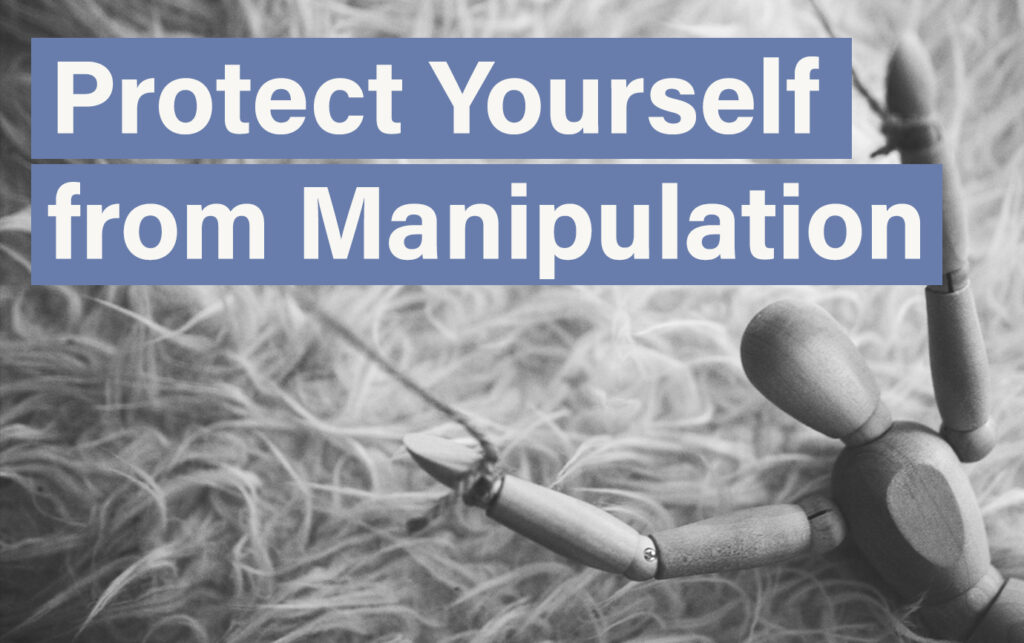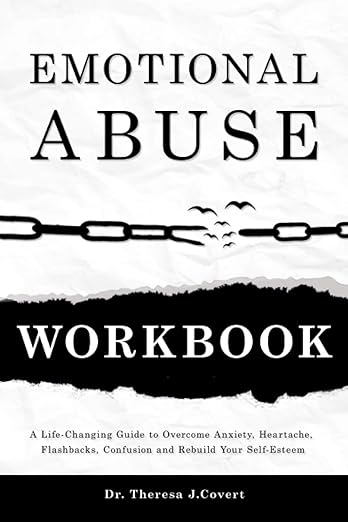In the complexity of human relationships, trust is the fundamental element for forming connections, while self-esteem is the cornerstone of our personal resilience…
Behind in the shadows of seemingly normal interactions lies a silent destroyer called: Manipulation.
This insidious force quietly chips away at the pillars of trust and self-worth, and leaves victims feeling lost, confused, and depleted.
Manipulation operates surreptitiously, often going unnoticed until significant damage has been done. It masquerades behind a facade of charm, persuasion, or even concern, making it challenging to discern its true intentions.
Whether it’s a subtle guilt trip, selective truth-telling, or strategic flattery, manipulators exploit vulnerabilities with precision, leaving their targets questioning their perceptions and reality.
Consider the scenario of a toxic relationship where one partner employs gaslighting tactics to undermine the other’s sense of reality. Through subtle twists of truth and persistent denial, the victim finds themselves doubting their memory, emotions, and even sanity.
Over time, this erosion of trust in oneself leads to a profound loss of self-esteem, as the victim begins to internalize the manipulator’s narrative of unworthiness and inadequacy.
Today, let’s explore 5 insidious tactics through which manipulation wreaks havoc on these fundamental aspects of our well-being, leaving us feeling vulnerable, confused, and diminished.
- Gaslighting
This tactic involves distortion of reality in the victim’s perception of truth. The manipulator subtly twists facts, denies previous statements, and invalidates the victim’s experiences, leaving them doubting their memory and sanity. Over time, the repeated onslaught of gaslighting erodes trust in oneself and fosters a deep-seated sense of self-doubt and confusion.So if you ever feel like you’re losing your grip on reality like someone is constantly questioning your thoughts, feelings, and experiences, you may be experiencing gaslighting.
Gaslighting is a manipulative tactic in which someone tries to make you doubt yourself and question your own sanity. But don’t worry, there are ways to respond and regain your sense of self. Click here to explore techniques on How to Respond to Gaslighting >>
- Guilt Tripping
Manipulators often wield guilt as a weapon to compel compliance and control.They take advantage of the victim’s sense of empathy and responsibility, they orchestrate scenarios where the victim feels obligated to meet their demands or fulfill their expectations.
This constant pressure to appease the manipulator instills a pervasive sense of guilt and inadequacy, eroding self-esteem and fostering dependency.
Isolation
Manipulators flourish in situations where they can dominate their victims completely.
To do this, they methodically cut off the victim’s access to support networks like friends, family, or community, creating a dependency and shutting out different viewpoints.
At the same time, they strengthen their own influence and gradually undermine the victim’s confidence in their own judgment and abilities.
- Love Bombing
This deceptive tactic involves showering the victim with excessive praise, attention, and affection in the initial stages of the relationship. They tend to overwhelm the victim with flattery and adoration, the manipulator creates a false sense of security and attachment.
Yet, once the victim is emotionally invested, they may abruptly withdraw affection or exploit vulnerabilities, causing the victim to question their worthiness and destabilize their self-esteem. - Manipulative Communication
Language serves as a potent tool for manipulation. Manipulators often use language to distort reality, manipulate emotions, and exert control.
Whether through selective truth-telling, half-truths, or outright lies, manipulators craft narratives that serve their agenda while taking advantage of the victim’s trust in their perceptions.
Additionally, manipulative communication often involves subtle forms of coercion, such as threats, ultimatums, or passive-aggressive remarks, further eroding the victim’s sense of autonomy and self-worth.
Furthermore, manipulation often operates in incremental stages, gradually escalating from subtle persuasion to overt coercion.
They may test the waters with minor requests or subtle emotional manipulation, gradually conditioning the victim to comply with increasingly unreasonable demands.
This gradual desensitization not only erodes trust in the relationship, it also undermines the victim’s confidence in their ability to assert themselves and resist manipulation.
Manipulation operates through a variety of insidious tactics…
… designed to quietly dismantle trust and self-esteem. You can now recognize these tactics and cultivate awareness of manipulative behaviour. Empower yourself to safeguard your well-being, assert your boundaries, and cultivate healthier, more authentic relationships built on trust and mutual respect.
If you would like to see how one of our therapists can help you or someone you know, simply call 613-848-3683 and one of our Client Care Coordinators would be delighted to share the details with you.
Or… Click here to book a call with a Care Coordinator now >>
Recommended Reading:
By the way, here’s a book that might also help…
Still struggling from the effects of an abusive relationship?
If you’re feeling heartbroken over one particular individual and this heartache has been going on for a weirdly long time…
If you are “stuck” on one person in your life, if you feel you are trauma bonded to an individual and can’t move past feeling heartbroken over them, then…
This book will work to eradicate that completely.
Click here to check out Emotional Abuse Workbook: A Life-Changing Guide to Overcome Anxiety, Heartache, Flashbacks, Confusion and Rebuild Your Self-Esteem now >>















